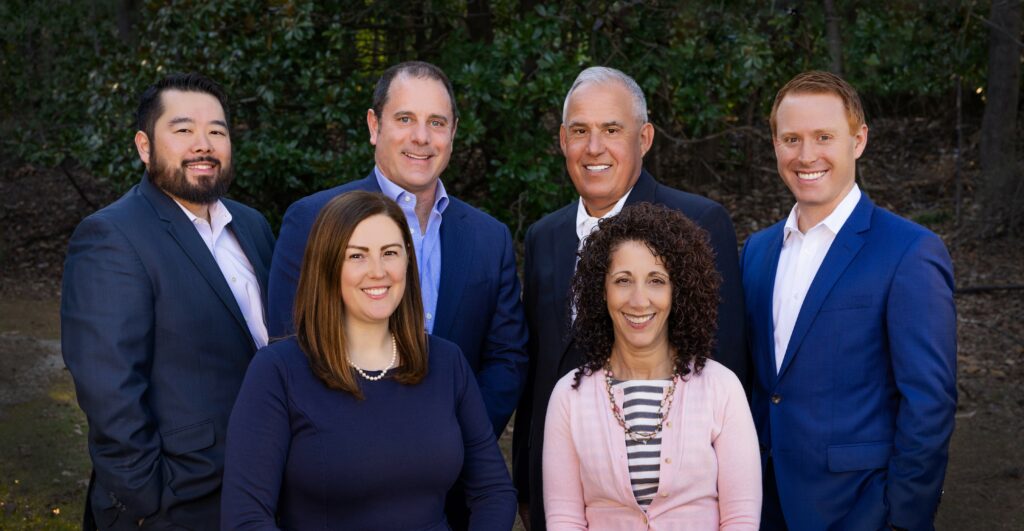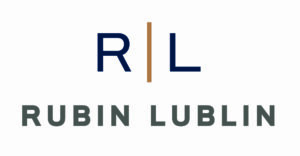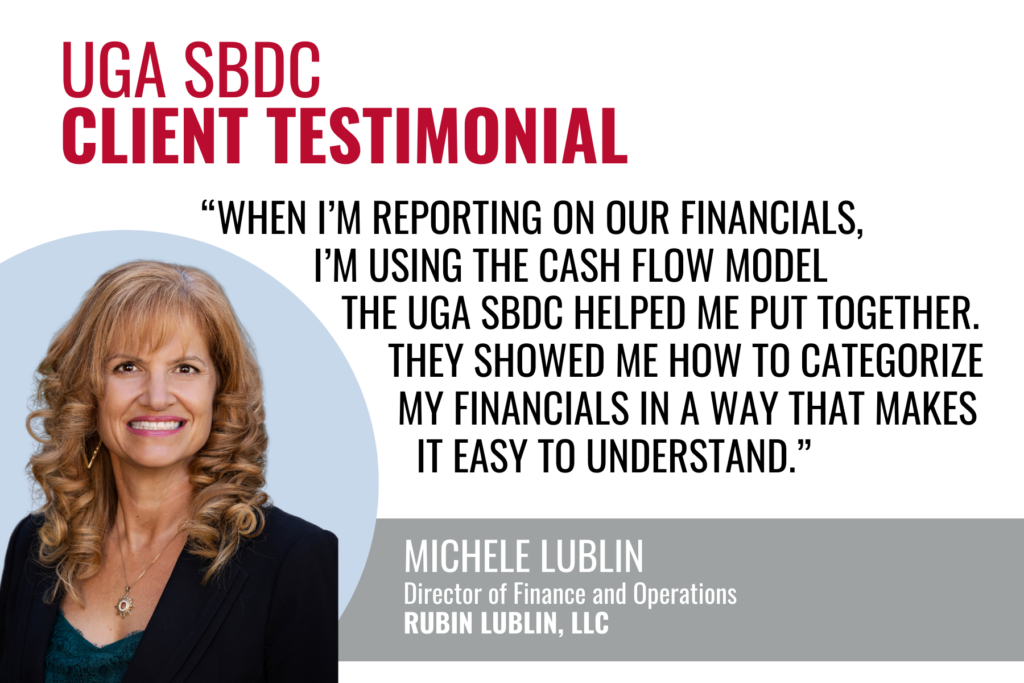The pandemic left many businesses uncertain about their financial future. For Rubin Lublin, LLC, a Peachtree Corners real estate law firm, the pandemic brought their primary line of legal work to a halt. Michele Lublin, the firm’s director of finance and operations, turned to the expertise and resources of the University of Georgia Small Business Development Center (UGA SBDC) for assistance.
Glenn Kruse, business consultant at the UGA SBDC at Gwinnett, and business consultant Amber Bennett worked with Rubin Lublin to obtain a Paycheck Protection Program (PPP) loan and employee retention tax credits. Together, they helped the Rubin Lublin team develop a unique cash-flow model to reassure clients the firm was on solid footing.
“Rubin Lublin was thrust into a crisis situation with a lot of unknowns,” Kruse said. “They knew their business well but were humble enough to recognize they needed help. We were at the forefront of the federal programs and kept current on their changes. By teaming with us, Rubin Lublin could quickly adopt changes in their cash flow model and adapt their business accordingly.”


During the pandemic, the CARES Act Moratorium on Foreclosures halted much of Rubin Lublin’s primary line of legal work. The business focuses on creditors’ rights in residential real estate—everything from closings to foreclosures and bankruptcies. Operating in four states, its attorneys manage non-judicial foreclosures and other legal matters for its mortgage banking clients.
“When the government stopped foreclosures, our lender and investor referrals dropped,” Lublin said. “Before these clients would refer work to us, they needed to know we’d be around to finish the job. So, they started requiring we provide them cash flow projections to show our firm was fiscally sound and could complete their projects.”
Since its partnership with the UGA SBDC and the end of the foreclosures moratorium, the firm’s revenues have risen to above pre-pandemic levels.
The UGA SBDC worked with Rubin Lublin to craft a unique cash flow model built for the uncertainty around the firm’s future revenue. The company used it to track the reduced revenue received during the moratorium, manage employee retention and project when the firm would exhaust its PPP funds.
“Michele Lublin had a good handle on business operations, but continued moratorium extensions added to her struggle in projecting a budget,” Kruse said. “As the rules changed, we were constantly changing the parameters of the cash flow model.”
In addition to seeing a surge in revenue, working with UGA helped Rubin Lublin grow from 57 employees in 2021 to 85 by the end of 2023. The efficiency of the new cash flow model also helped raise the firm’s revenue per employee numbers past pre-pandemic levels.
“Budgeting is hard in our industry,” Lublin said. “I’ve been working on budgeting for 15 years to get to a process I can use to budget well. Now, when I’m reporting on our financials, I’m using the cash flow model the UGA SBDC helped me put together. They showed me how to categorize my financials in a way that makes it easy to understand.
“Glenn and Amber gave me the support I needed to feel confident about the numbers I was providing our clients. They are both exceptionally fine individuals who know what they’re doing, and they care. It comes through in their work. Any small business would be lucky to work with them.”
RESULTS

For More Information: University of Georgia SBDC | (706) 542-2762
The UGA SBDC is funded through a cooperative agreement with the U.S. Small Business Administration. Click here to view our federal funding disclosure.
All SBDC services are provided in a nondiscriminatory way to all legal residents and citizens in the United States. Reasonable accommodations for persons with disabilities will be made if requested at least two weeks in advance.

The UGA SBDC is an accredited member of America’s SBDC.
The University of Georgia
Small Business Development Center
382 East Broad Street
Athens, GA 30602-5412
P: (706) 542-2762